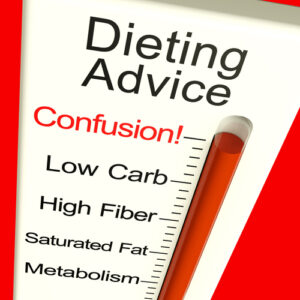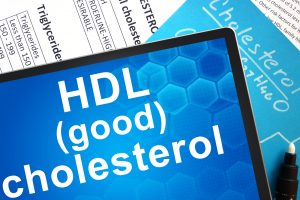What Are The Pros And Cons Of Twin Studies?
Author: Dr. Stephen Chaney
 Why is the advice on healthy diets so confusing? One blog claims the vegan diet is best. Another says it is the keto diet is best. The Mediterranean diet is popular, but other experts claim the DASH or MIND diet might be better. Blogs champion diets ranging from the familiar to downright weird.
Why is the advice on healthy diets so confusing? One blog claims the vegan diet is best. Another says it is the keto diet is best. The Mediterranean diet is popular, but other experts claim the DASH or MIND diet might be better. Blogs champion diets ranging from the familiar to downright weird.
If you try to keep up with the science, it seems like the science is constantly changing. Each week you see headlines saying the latest study shows diet “X” is best – and “X” keeps changing. Why is that? Why do studies on healthy diets keep coming up with conflicting conclusions?
I have discussed the strengths and weaknesses of clinical studies and why they provide conflicting results in detail in previous issues of “Health Tips From the Professor”. However, one factor I have not discussed in detail is the effect of genetics on how we utilize foods, something called nutrigenomics.
Simply put, we are all genetically different. The way we utilize foods is different. The effect that foods have on our bodies is different. I have touched on that briefly in a previous article discussing individual difference in blood sugar response to various foods. But that is just one of many examples.
We do not yet know enough about gene-nutrient interactions to use genomic data to accurately predict which diets are best. Again, I have covered that topic in a previous issue of “Health Tips From the Professor”. However, we do know that genetic differences have a big influence on which diet is best for us. And most clinical studies on diets do not even attempt to take genetic differences into account.
That is where twin studies come in. Identical twins (monozygotic twins) have an identical genetic makeup and usually have an identical environment until they become adults. So, when I saw an identical twin study (MJ Landry et al, JAMA Network Open, 6(11):e2344457, 2023) comparing a vegan diet (only plant foods) with an omnivorous diet (both animal and plant foods), I wanted to review it and share it with you.
How Was The Study Done?
 Identical twins were recruited from the Stanford Twin Registry. Twenty-two identical twin pairs were chosen for this study. Their characteristics were average age = 40, BMI = 26% (moderately overweight), sex = 77% female, ethnicity = 73% white, followed by an approximately equal representation of Asian, black, multiracial, and Pacific Islander.
Identical twins were recruited from the Stanford Twin Registry. Twenty-two identical twin pairs were chosen for this study. Their characteristics were average age = 40, BMI = 26% (moderately overweight), sex = 77% female, ethnicity = 73% white, followed by an approximately equal representation of Asian, black, multiracial, and Pacific Islander.
One unanticipated characteristic of this group of twins was that 70% of them still lived together and cooked together, so their environment was also very similar.
One twin of each pair was put on a healthy vegan diet and the other on a healthy omnivorous diet for 8 weeks. Both diets were designed by dietitians. The diets emphasized fruits, vegetables, and whole grains while limiting added sugars and refined grains.
Both diets were healthier than the diets the twins were eating prior to the study. Finally, the participants were not told how much to eat, and were not instructed to lose weight.
For the first four weeks the participants were provided with all their meals by a nationwide food delivery company. The participants were also provided with training on purchasing and preparing healthy foods for their diet. This prepared them for the last 4 weeks of the study in which they purchased and prepared their own meals.
Participants visited the Stanford Clinical and Translational Science Research Unit at the beginning of the study and at the end of weeks 4 and 8 for weight measurement and a fasting blood draw.
Adherence to the diets was measured by a series of unannounced interviews to administer a 24-hour dietary recall questionnaire. These were scheduled for the weeks they visited the clinic.
What Can Twins Tell Us About Diet?
 Even though the sample size was small, there were three statistically significant results.
Even though the sample size was small, there were three statistically significant results.
- LDL-cholesterol was reduced by 12% for the twin on the vegan diet, while it remained unchanged for the twin on the omnivorous diet.
- The fasting insulin level was reduced by 21% for the twin on the vegan diet, while it remained unchanged for the twin on the omnivorous diet. This suggests the twin on the vegan diet was experiencing improved blood sugar control after just 8 weeks.
- The twin on the vegan diet lost 4 pounds in 8 weeks, while weight remained the same for the twin on the omnivorous diet. This occurred even though neither twin was instructed to eat less nor to lose weight. It is most likely a consequence of the lower caloric density of the vegan diet (See my discussion of caloric density in last week’s issue of “Health Tips From the Professor”.
- The changes in LDL-cholesterol and fasting insulin were remarkable because none of the twins in this study had elevated LDL-cholesterol or problems with blood sugar control at the beginning of the study.
The authors of this study concluded, “In this randomized clinical trial of the cardiometabolic effects of omnivorous vs vegan diets in identical twins, the healthy vegan diet led to improved cardiometabolic outcomes compared with a healthy omnivorous diet. Clinicians can consider this dietary approach as a healthy alternative for their patients.”
[Let me decipher the term cardiometabolic for you. The decrease in LDL-cholesterol is associated with heart health – the cardio portion of the term. The decrease in fasting insulin is associated with decreased risk of diabetes. Since diabetes is considered a metabolic disease, this is the metabolic portion of the term.]
Were There Any Downsides To The Vegan Diet?
 This study also highlighted two well-known limitations of vegan diets.
This study also highlighted two well-known limitations of vegan diets.
- Although the differences were not statistically significant, the authors expressed concern that vitamin B12 intake was less for twins on the vegan diet than twins on the omnivorous diet even though the vegan diet was designed by dietitians.
The authors noted that B12 deficiency among vegans is well known, and said, “Long-term vegans are typically encouraged to take a cyanocobalamin (vitamin B12) supplement.
- Although both groups had excellent adherence to their assigned diets, those assigned to the vegan diet expressed a lower satisfaction with the diet, which suggests long-term adherence to the diet after the study ended was unlikely.
The authors said, “Although our findings suggest that vegan diets offer a protective cardiometabolic advantage compared with a healthy omnivorous diet, excluding all meats and/or dairy products may not be necessary because research suggests that cardiometabolic benefits can be achieved with modest reduction in animal foods and increases in healthy plant-based foods compared with typical diets.”
“We believe that lower dietary satisfaction in the vegan group may have been attributable to the strictness of the vegan diet…Some people may find a less restrictive diet preferable for LDL-cholesterol-lowering effects.”
I concur.
What Are The Pros And Cons Of Twin Studies?
 The Pros are obvious. Most dietary studies cannot take genetic differences into account and have difficulty accounting for environmental differences. In this study genetics was identical for each twin pair and their environment was very similar. It offers a unique advantage over other studies.
The Pros are obvious. Most dietary studies cannot take genetic differences into account and have difficulty accounting for environmental differences. In this study genetics was identical for each twin pair and their environment was very similar. It offers a unique advantage over other studies.
But the strength of this study is also its greatest weakness. Because the general population is genetically and environmentally diverse, it is difficult to extrapolate the results to the general population.
If this were the only study to show cardiometabolic benefits of a plant-based diet, it would simply be an interesting observation.
- But there are several studies showing that the vegan diet is associated with lower weight and reduced risk of heart disease and diabetes.
- And there are dozens of studies showing that primarily plant-based omnivorous diets reduce the risk of heart disease and diabetes.
This study is fully consistent with those studies.
The Bottom Line
A recent study put identical twins on either a healthy vegan diet (only plant foods) or a healthy omnivorous diet (both animal and plant foods) for 8 weeks. At the end of 8 weeks:
- LDL-cholesterol was reduced by 12% for the twin on the vegan diet, while it remained unchanged for the twin on the omnivorous diet.
- The fasting insulin level was reduced by 21% for the twin on the vegan diet, while it remained unchanged for the twin on the omnivorous diet. This suggests the twin on the vegan diet was experiencing improved blood sugar control after just 8 weeks.
- The twin on the vegan diet lost 4 pounds in 8 weeks, while weight remained the same for the twin on the omnivorous diet. This occurred even though neither twin was instructed to eat less or to lose weight. It is most likely a consequence of the lower caloric density of the vegan diet.
- The changes in LDL-cholesterol and fasting insulin were remarkable because none of the twins in this study had elevated LDL-cholesterol or problems with blood sugar control at the beginning of the study.
The authors of this study concluded, “In this randomized clinical trial of the cardiometabolic effects of omnivorous vs vegan diets in identical twins, the healthy vegan diet led to improved cardiometabolic outcomes compared with a healthy omnivorous diet. Clinicians can consider this dietary approach as a healthy alternative for their patients.”
For more information on the pros and cons of this study and what it means for you, read the article above.
These statements have not been evaluated by the Food and Drug Administration. This information is not intended to diagnose, treat, cure or prevent any disease.
_____________________________________________________________________________
My posts and “Health Tips From the Professor” articles carefully avoid claims about any brand of supplement or manufacturer of supplements. However, I am often asked by representatives of supplement companies if they can share them with their customers.
My answer is, “Yes, as long as you share only the article without any additions or alterations. In particular, you should avoid adding any mention of your company or your company’s products. If you were to do that, you could be making what the FTC and FDA consider a “misleading health claim” that could result in legal action against you and the company you represent.
For more detail about FTC regulations for health claims, see this link.
https://www.ftc.gov/business-guidance/resources/health-products-compliance-guidance
_______________________________________________________________________
About The Author
 Dr. Chaney has a BS in Chemistry from Duke University and a PhD in Biochemistry from UCLA. He is Professor Emeritus from the University of North Carolina where he taught biochemistry and nutrition to medical and dental students for 40 years. Dr. Chaney won numerous teaching awards at UNC, including the Academy of Educators “Excellence in Teaching Lifetime Achievement Award”. Dr Chaney also ran an active cancer research program at UNC and published over 100 scientific articles and reviews in peer-reviewed scientific journals. In addition, he authored two chapters on nutrition in one of the leading biochemistry text books for medical students.
Dr. Chaney has a BS in Chemistry from Duke University and a PhD in Biochemistry from UCLA. He is Professor Emeritus from the University of North Carolina where he taught biochemistry and nutrition to medical and dental students for 40 years. Dr. Chaney won numerous teaching awards at UNC, including the Academy of Educators “Excellence in Teaching Lifetime Achievement Award”. Dr Chaney also ran an active cancer research program at UNC and published over 100 scientific articles and reviews in peer-reviewed scientific journals. In addition, he authored two chapters on nutrition in one of the leading biochemistry text books for medical students.
For the past 35 years Dr. Chaney and his wife Suzanne have been helping people improve their health holistically through a combination of good diet, exercise, weight control and appropriate supplementation.






